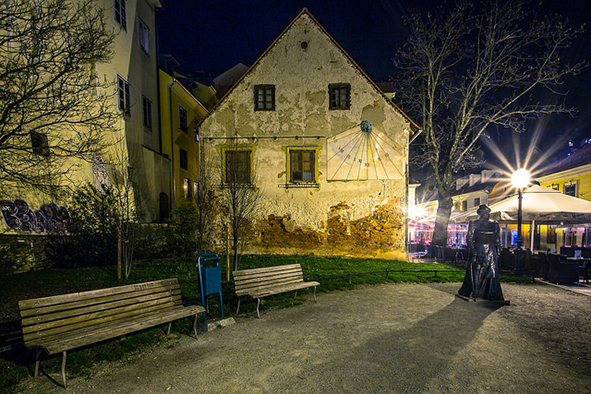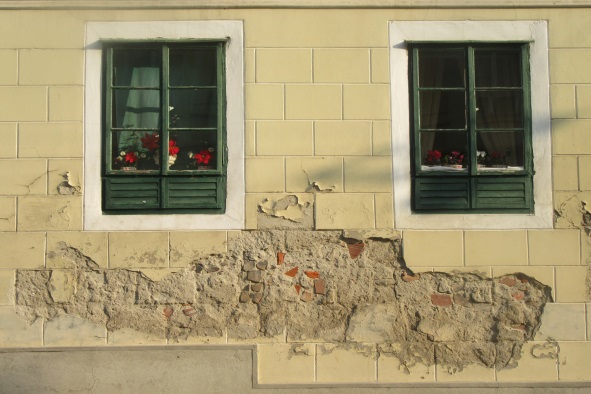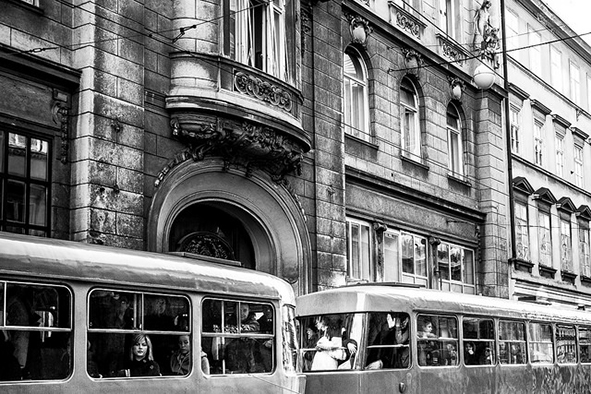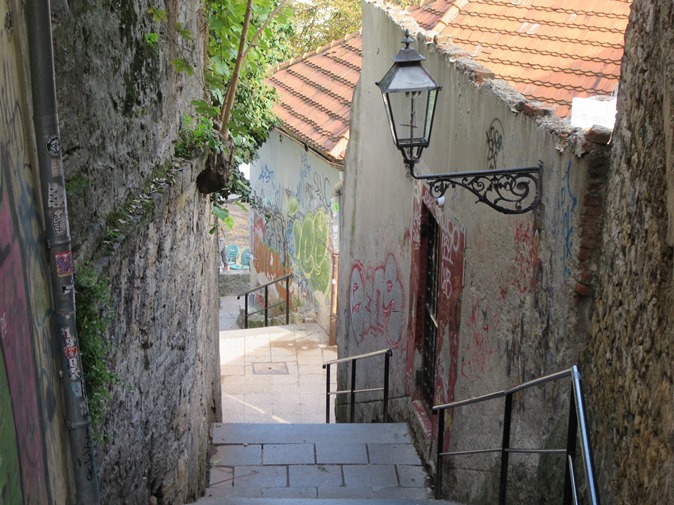Buildings may flake, peel, and crumble in Croatia’s capital, Zagreb, but its inhabitants don’t appear to be in any rush to schedule a facelift. While first-time visitors may leave with a “meh,” locals love it all the more.

Zagreb’s rough edges are part of the charm (Photo: Roberto Taddeo via Flickr)
If communism did anything good for the Eastern Bloc, it’s that it essentially pickled it. Escaping the West’s mass urban renewal programs of the ‘50s and ‘60s, cities like Prague, Budapest, and Tallinn emerged on the other side of communism with some of the best preserved old-world architecture in Europe, albeit often smeared with thick coats of soot and despair. This Europe became the main draw for the first waves of expats arriving in the ‘90s and a welcome contrast to the expensive, polished and sanitized West.
With the increase in tourism and real estate values, cities like Prague have invested the returns in sanding off the rough edges, applying new coats of paint, and designing interiors fit for a Starbucks. For adventure-seeking expats from the West, this not only makes them less affordable but also robs them of “authenticity.” Indeed, some look farther east to the growing expat hubs: Lviv, Bucharest, and Tirana. But they need not go further than Zagreb.
Deliberate Neglect

A flaking facade in Zagreb (Photo: Mike Dunphy)
Compared to the Game of Thrones cities of Split, Šibenik, and Dubrovnik on the coast, Zagreb looks drab and weather-beaten. Seemingly every third or fourth building in the city center is blighted by flaking paint, plaster, and mortar; exposing naked brick.
Economics has much to do with it, as EU funds, newly available after Croatia’s formal assentation in 2013, remain minimally tapped. But to locals like Andrea Pisac, author of Zagreb Honestly, there’s much more to it. “The other part of the story is connected with the pride of being a real Zagreb person, locally called ‘Purger,’ she explains. “Residing in one of those historic buildings is a question of pride, of being rooted in a tradition, of having the Zagreb pedigree. Many ‘indigenous’ residents are retired and relying on small pensions and therefore unable to fix things on the outside.”
Cody Brown, Oklahoma transplant and author of the Croatian best-seller Chasing the Croatian Girl (which my Croatian dentist called “absolutely perfect”), also points out that going out of your way to improve something is not always welcome. “Ambition in Croatia doesn’t always have a positive meaning,” he explains. “To be ambitious can mean you’re someone who is trying to make the right connections with the right people to rise to a higher position. That’s why ambition is thought to have little to do with honest drive and initiative, but to be part of the problem.”
The Problem With Ambition

Locals commuting in Zagreb (Photo: Roberto Taddeo via Flickr)
For ambitious and capable business development managers like Antonia Iviček, the issue presents a quandary shared by many young Croatians: “You can stay here and have a good salary, good working hours, low stress, but only use 5% of capabilities, or go to ambitious route by moving abroad, but most likely enjoying fewer of these perks.” Plus, she points out, although less glamorous than Dalmatia cities, Zagreb excels at living, with plenty of space, few crowds, natural resources, clean streets and a mountain just a few steps away. “We Croatians are fully aware of everything we have, that’s why many say there is no need to work harder, everything is already good.”
Zagreb’s petite tourist and entertainment district represents the only buck to the trend, with the vast majority of its wine bars, burger joints, patio cafes and shopping boutiques opening since Croatia’s EU ascension. In other words, it’s almost entirely reactive, not pro-active. The proof is inside, as demonstrated by one wine bar waiter, who responded to my question, “What’s special about this place?” with the answer, “nothing.”
He’s wrong, I decided at the end of my third month in the city, but he’s ironically also a good example of what makes Croatia’s capital endearing in the long run. Zagreb doesn’t try to impress you. It doesn’t doll itself up and strut the public catwalk with an upturned nose, shaded eyes, and a wake of perfume. Zagreb just does what it needs to do to get through the day and return home to the things that matter: The friends and families inside the buildings. Everything else is just skin deep.

A staircase in the center of Zagreb (Photo: Mike Dunphy)